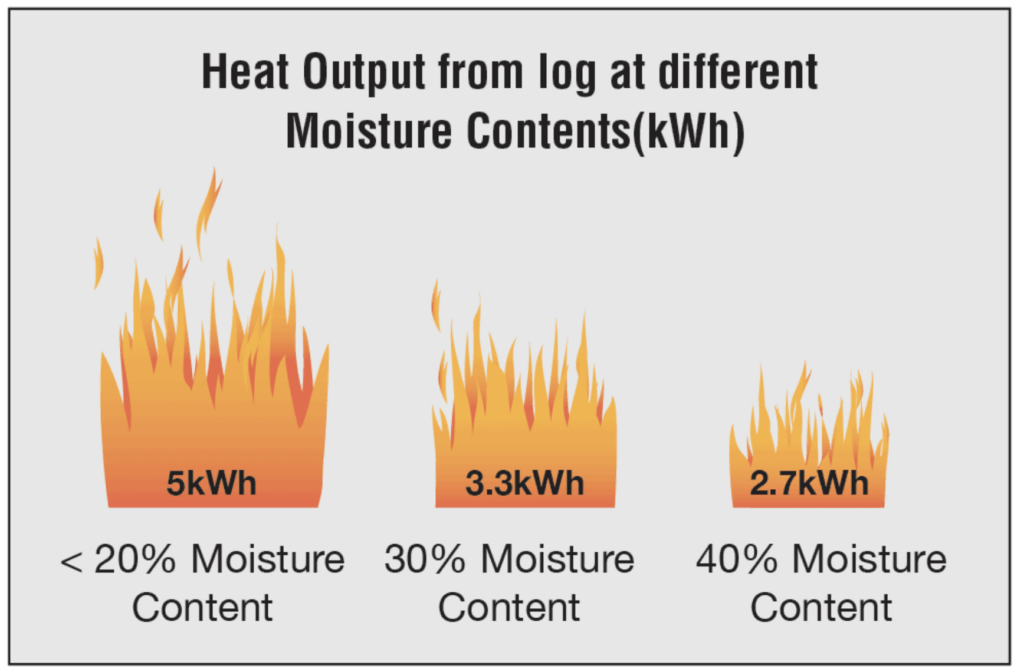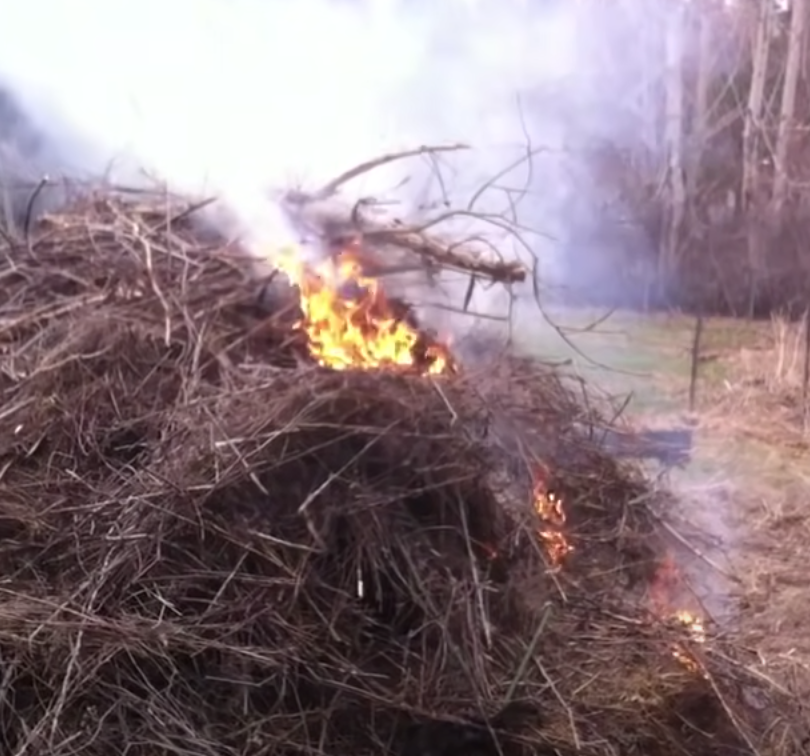You should avoid burning rubbish on your wood-burning stove. Or any fire, for that matter.
To ensure maximum efficiency and minimal pollution, it’s important to be aware of what you are burning on your stove. You should only burn correctly seasoned wood on a wood-burning stove. The diagram shows just how important this is:

Excessive moisture content in wood is really bad news. It pollutes and causes poor heat output. Below are a number of points which explain the dangers of burning rubbish – literally and metaphorically speaking:
1. It’s not efficient. It’s easy to say, ‘only burn seasoned wood’. But if you have a stark choice between going cold or burning some rubbish or something else totally unsuitable to keep warm, we understand the position people can be in. However, here lies the problem. Burning rubbish or other unsuitable items to keep warm is, more often than not, incredibly inefficient. It will produce a poor heat output. So your efforts to stay warm are very much wasted.
2. It can be deadly. When you burn household rubbish, you release deadly toxins into the atmosphere. These include fine particles, dioxins, VOCs (volatile organise compounds), polycyclic aromatic hydrocarbons, and polychlorinated biphenyls (PCBs). These have been linked to heart disease, cancers and other illnesses.

3. It congests. When you burn things like household rubbish, plastic, unseasoned wood, furniture etc it creates congestion in the flue. This significantly increases the risk of carbon monoxide poisoning and chimney fires.
4. It pollutes. It’s not only deadly for the people who are burning the rubbish in the immediate vicinity, you’re also making a huge contribution to pollution on a larger scale. In poor countries, the burning of rubbish is directly linked to increased air pollution and all the associated problems this brings, such as increases in respiratory illnesses, cancers and general poor health.
With the Russian invasion of Ukraine, which started well over two years ago, and the continuing issues with gas supply, firewood is still very expensive in some European regions as the need to stay warm grows. This is one reason why people are resorting to burning rubbish. It’s sometimes down to pure desperation and not lack of awareness, which casts a very sad picture.
Recent University Study on Pollution:
In a recent study, the results of which were published this month, researchers from the University of Miskolc, Hungary, found that in the UK, at least 4% of homes that burn solid fuel indoors also burn rubbish on their fires, and one survey suggests this could be as high as 37%. The study did not indicate the type of appliance these individuals may be using to burn rubbish – although we suspect it would mostly be owners of open fires, who tend to be less aware of the environmental implications of burning rubbish. The study looked at air pollution when oak logs were burned. They then tested a mix of oak logs and 10% rubbish, which included plastic and textiles, cardboard and coated papers such as drink cartons. It was discovered that cotton, cardboard and coated paper caused the greatest levels of pollution.
The study didn’t just look at the UK – globally, the climate impact of soot from open burning of waste is estimated to cause 2-10% of all carbon dioxide emissions.
Tips to Burn Better:
1. Use seasoned wood only, ideally with a moisture content of no more than 20%.
2. Top Down Method – Put kindling on top of the larger logs when starting a fire. It’s more efficient and causes less pollution.
3. Keep a fire hot – keeping a fire hot and not “running down” what you have is a good idea. When a fire is hot, it’s efficient. Letting it use up the firewood before adding more will ultimately use more fuel, so try to avoid this.
4. Use an efficient stove – An Ecodesign stove is best. It’s hugely more efficient than an open fire or outdated stove, which does not use Ecodesign technology.








